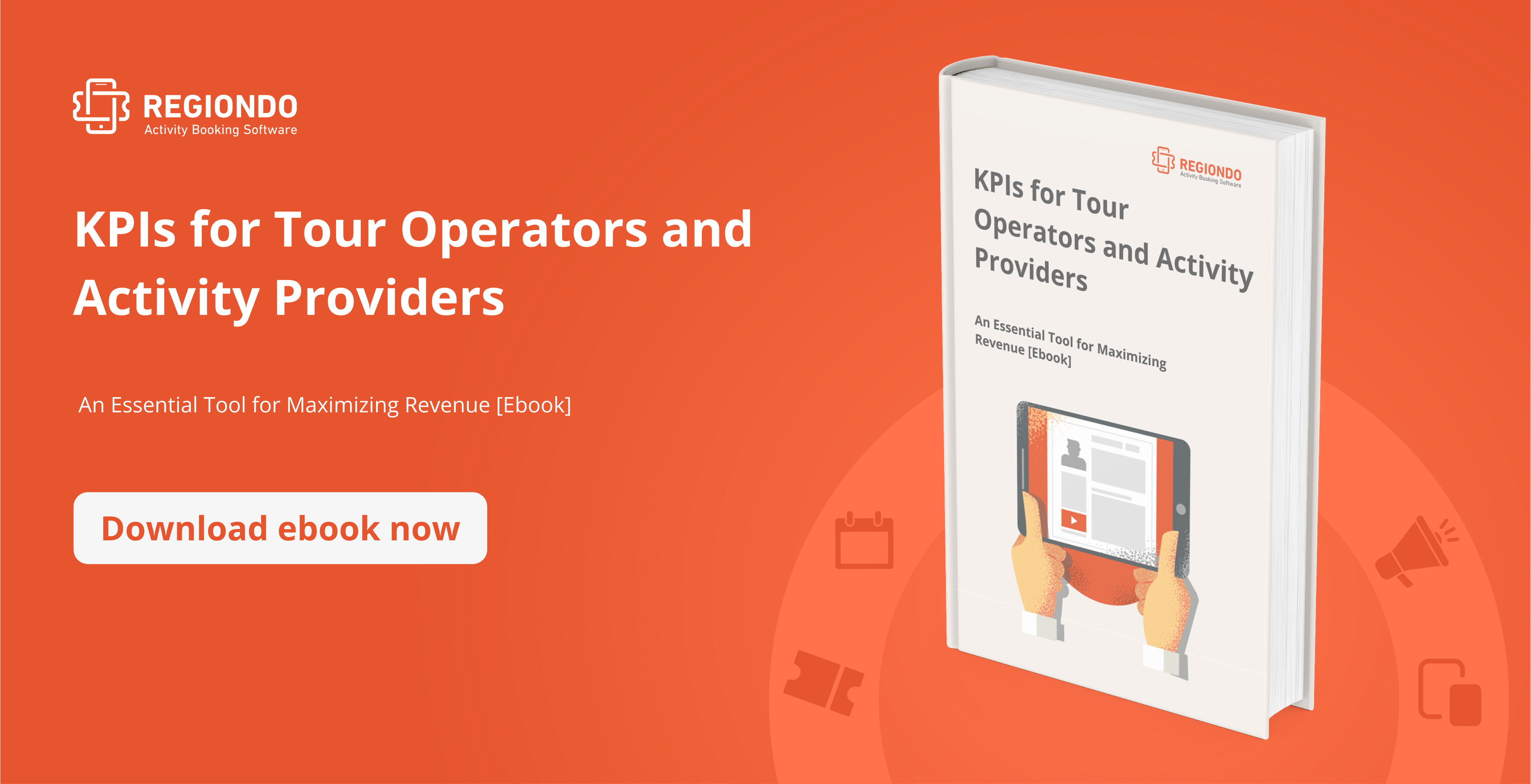The tourism industry has made a remarkable recovery since the challenges of the COVID-19 pandemic, with many destinations reporting record-breaking visitor numbers in 2023. For example, according to the UNWTO, the tourism industry has generated over $1.5 trillion worldwide last year! In 2024, the outlook remains positive, with travelers eager to make up for lost time and experience new adventures. For tour and activity providers, this presents a fantastic opportunity to grow their business and share their passion with even more guests.
However, with increased demand comes the risk of overbooking – that is, accepting more reservations than you can accommodate. While it may be tempting to maximize bookings across multiple channels to boost revenue and collect more reviews, overbooking can lead to significant challenges. When faced with too many guests, operators must either reschedule or cancel reservations, which can negatively impact the overall guest experience, lead to negative reviews and result in refunds.
As someone who works closely with tour and activity providers, I understand the day-to-day challenges of running a tourism company while managing multiple distribution channels. To help you navigate these complexities and avoid overbooking situations, I’ve created this comprehensive guide for 2024. Curious to learn more? Then let’s dive right in!
Looking for a software solution that can help you avoid overbooking and manage reservations from multiple sales channels? Regiondo is what you need. For more information, book a free demo with one of our consultants.

Understanding the Causes of Overbooking
Overbooking can be caused by several factors, which can be broadly categorized into human error and systemic issues. Identifying the root cause of your overbooking is critical to implementing effective solutions.
Human error often occurs when staff make mistakes when managing reservations, whether using a traditional notebook, spreadsheet, or dedicated software. In such cases, thorough training for both new hires and existing employees can significantly reduce errors. For best results, emphasize the importance of accurate data entry and provide practical guidance on how to use your reservation system effectively.
Systemic issues arise when accepting reservations from multiple channels, such as OTAs, direct bookings, and walk-ins, resulting in double bookings for the same slot. While splitting participants into smaller groups with additional guides can work in some cases, hiring guides at the last minute can be a challenge.
The Impact of Overbooking on Your Business
Overbooking can have far-reaching consequences for your tour or activity business, affecting both your short-term operations and your long-term reputation. When overbooking occurs, you may face the following issues:
- Customer Dissatisfaction – When guests arrive for a tour or activity only to find it’s overbooked, they are likely to feel frustrated and disappointed. This can lead to negative reviews on platforms such as TripAdvisor, Google, and OTAs, which can discourage potential customers from booking with you in the future.
- Refunds – In many cases, overbooked guests will request refunds or compensation for their inconvenience. This not only affects your revenue, but also increases your administrative workload as you process said reimbursements and handle customer complaints.
- Strained Relationships with Partners – When overbooking comes from a specific distribution channel or partner, such as an OTA or a local reseller, it can strain your business relationships. Consistent overbooking can cause partners to lose confidence in your ability to manage your inventory effectively, potentially resulting in reduced commitment or even termination of the partnership.
- Operational Stress – Dealing with overbooking can be incredibly stressful for you and your team. Last-minute changes, customer complaints, and scrambling to find additional resources can take a toll on employee morale and productivity.

Effective Strategies to Reduce Overbooking
Increase Staff Training
If human error is the primary cause of your overbooking, investing in comprehensive staff training is essential. Organize refresher courses for existing employees and develop a thorough onboarding process for new hires. Focus on the proper use of your reservation system and the importance of accurate data entry.
Additionally, if you work with OTAs, train your staff to manage inventory through their admin portals. While some owners and managers prefer to keep these channels off-limits to employees, the last thing you want is for overbookings to come in during a high-demand period and your team has no way to handle them.
Implement Strict Booking Policies
Establishing and enforcing strict booking policies can help reduce overbooking and minimize its impact on your operations. Consider implementing the following policies:
- Cut-off Times – Set a time after which no new reservations can be made for a particular tour or activity (for example, 24 hours before its start). This allows you to finalize your guest list and make necessary preparations without the risk of last-minute overbooking.
- Group Size Limits – Set maximum group sizes for your tours and activities and strictly adhere to these limits. This helps prevent overbooking due to miscommunication or errors in group reservations.
- Mandatory Booking Confirmation – Require guests to confirm their reservation within a specified time frame (e.g. 48 hours). If they do not confirm their booking within this window, it is automatically canceled and the slot becomes available to other customers.

Implement a Waitlist System
Implementing a waitlist system can help you manage excess demand without the risk of overbooking. We recommend that when a tour or activity reaches capacity, you offer guests the opportunity to join a waitlist. If cancellations occur or additional seats become available, you can then contact waitlisted patrons in the order in which they signed up to fill the spots.
A waitlist system not only helps prevent overbooking, but also provides valuable insight into demand patterns. If you have a consistently high number of waitlisted guests for certain tours or time slots, consider adding more capacity to meet the additional demand.
Offer Incentives to Guides for Last-Minute Tours
Another way to limit overbooking is to offer extra benefits to freelance guides who take last-minute tours. It goes without saying that the most effective incentive is a higher pay rate. Depending on the size and value of the overbooking, this may or may not be worth it. While this strategy won’t reduce the number of overbookings you receive, it will lessen the impact they can have on guests.

Reduce Your Distribution Channels
Let’s say you are experiencing overbooking because you have too many channels to manage and not enough hours in the day. In this case, you may want to consider reducing the number of distribution channels you are working with. This could be some underperforming OTAs, wholesalers, local resellers, etc. When considering this option, focus on those that create more work than value.
However, this choice could be detrimental to your bottom line by limiting the reach of your business. This is especially true for OTAs, which typically serve an international audience, and you know how difficult it is for SMBs to reach overseas customers through typical marketing strategies. Luckily, there are a few other options you can try before limiting your distribution channels.
Leverage Technology Solutions
Investing in technology solutions can significantly reduce the risk of overbooking and streamline your reservation management process. Consider implementing the following tools:
- Booking System – A comprehensive booking system allows you to manage your inventory, pricing and reservations across multiple channels from a single platform. By synchronizing availability in real time, reservation systems minimize the risk of double- and overbookings.
- Channel Manager – Channel managers facilitate the distribution of your inventory across multiple sales channels, such as OTAs, your website, and local resellers. They ensure that availability is accurately reflected on each platform, reducing the likelihood of overbooking.
- Resource Management Tools – Implement resource management tools to efficiently allocate and track the resources needed for each tour or activity, such as guides, vehicles, equipment, and meeting points. These tools help prevent overbooking by ensuring you have the necessary resources for each booking and can help you identify potential resource conflicts. Some booking systems offer integrated resource management functionality, allowing you to assign and track resources directly within the platform. This can help you optimize resource utilization, avoid double-booking resources, and ensure smooth operations.

Regiondo: Your Partner in Preventing Overbookings
As a tour and activity provider, partnering with a reliable and innovative booking system is essential for preventing overbooking and streamlining your processes. Regiondo, the leading booking system for tours, activities, and destinations in Europe, offers a comprehensive suite of tools to help you manage your inventory, streamline your reservation process, and distribute your offerings across multiple channels.
With Regiondo, you can:
- Centralize your inventory management and sync availability across all distribution channels in real-time.
- Automate booking confirmations, reminders, and follow-up messages to guests.
- Integrate with popular OTAs and distribution partners to expand your reach.
- Access detailed analytics and reporting to make data-driven decisions.

Conclusion
In conclusion, overbooking is a common challenge faced by tour and activity providers, especially as the tourism industry continues to recover in 2024. By understanding the causes and impact of overbooking on your business, you can implement effective strategies to minimize its occurrence and maintain high levels of guest satisfaction.
Key takeaways
- Overbooking can be caused by human error or systemic issues resulting from managing multiple distribution channels.
- The consequences of overbooking include customer dissatisfaction, refunds, strained partner relationships and operational stress.
- Increase staff training to reduce human error and ensure proper use of reservation systems.
- Implement strict booking policies, such as cut-off times, group size limits, and mandatory booking confirmations, to minimize overbooking.
- Utilize a waiting list system to manage excess demand and gain valuable insight into demand patterns.
- Incentivize freelance guides to take last-minute tours due to overbooking.
- Consider reducing distribution channels that create more work than value, but be mindful of the potential impact on your company’s reach.
- Leverage technology solutions such as booking systems, channel managers, and resource management tools to streamline your reservations process and reduce the risk of overbooking.
By implementing these strategies and partnering with a comprehensive booking solution like Regiondo, you can effectively manage your inventory, reduce overbooking, and focus on delivering memorable experiences to your guests. For more information, schedule a free demo with one of our consultants.




